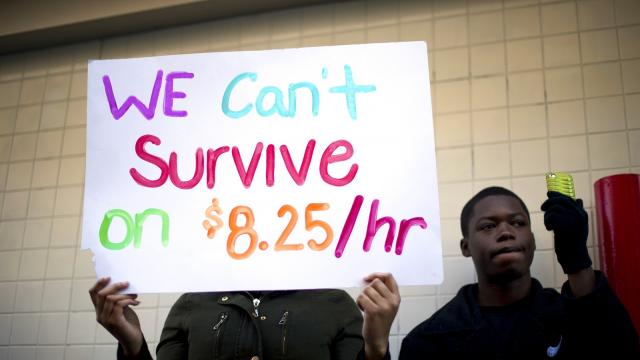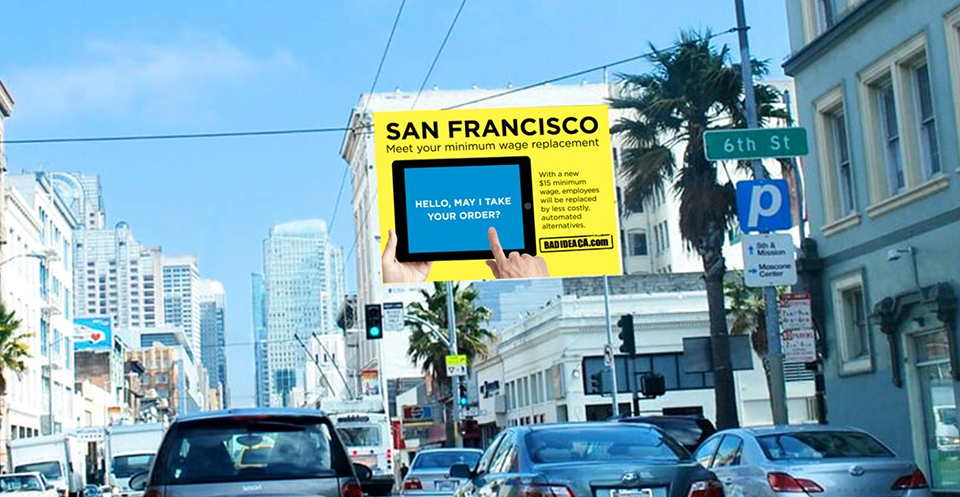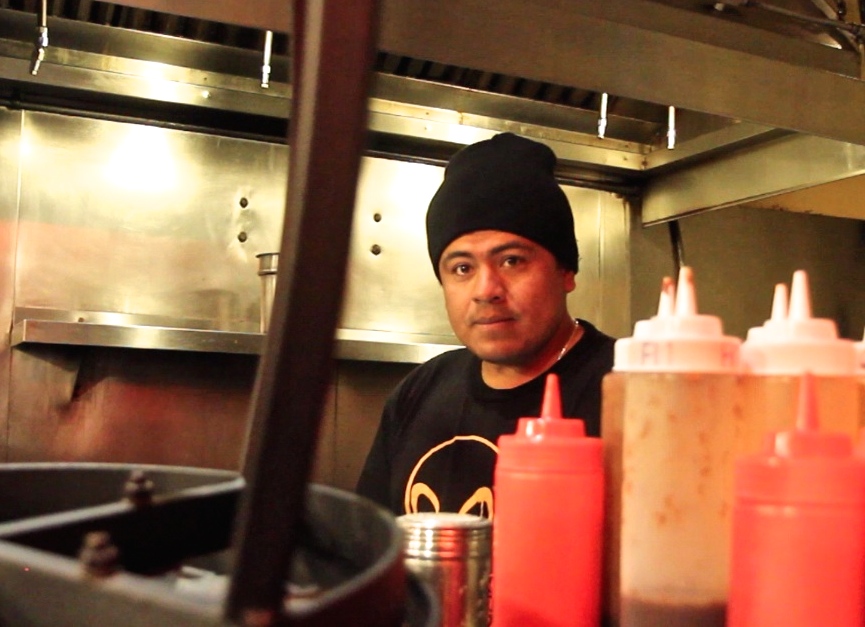
SAN FRANCISCO – As the sun begins to creep into view, Laetitia is already at the bus stop, waiting patiently for her commute nearly an hour south of San Francisco, where she works as a line cook at an upscale restaurant, earning minimum wage.
She will work six hours before heading to a second job where she works another five to six hours, earning enough money to support herself and her seven-year-old son, Jesus. For Laetitia, 29, this is the daily grind – and it's why she is hopeful about the wage hike that is coming.
“I know that if [the minimum wage] was increased, it would give me the chance to reduce my hours and be able to spend time with my son and be a mother again,” she said.
Last September, California passed new legislation to raise the minimum wage in the state to $10 an hour by 2016. But it was fraught with controversy and antagonism, especially from those in the restaurant industry who claimed the move would result in a loss of jobs.
Public and union support for the measure, however, was too strong for industry to have its way. "This is the time to raise the minimum wage to provide relief for hard-working families," said the bill's author, Assemblymember Luis Alejo. Three out of five minimum wage earners in the state are 26 or older, Alejo said.
Laetitia, a Mexican-American immigrant who recently obtained her green card after eight years living in the country, said she doesn’t understand why businesses would be against an increase in her wages.
“It doesn’t make sense to me that I work hard, help the restaurant make money and yet I can’t eat there or support my family on just one job. This is not the America that I believe in,” she said.
The evidence supports Laetitia’s views. Economists suggest there is no evidence that an increase in minimum wage at restaurants hurts business. A number of recent studies, including one by economists at Harvard University, suggest that an increase of only $0.10 to $0.25 in the most popular menu items of a restaurant would offset any employer worries that a wage increase is worse for business.
The extra earnings that come with a wage increase – like the additional two dollars that workers in California will see by next January – go a long way for many in Laetitia's shoes, and for minorities especially, who struggle to make ends meet.
“If I only had to work one job and spend time helping my son succeed, this would be my dream," she added. But "right now I work 60 or more hours a week and I am tired, so people need to understand that there are many single mothers like me out there who could have a life if our wages increased.”
Business Strikes Back
In San Francisco, the restaurant industry has gone on the offensive, claiming that if the minimum wage is increased further, to the proposed $15 now being discussed, more workers will lose jobs to automated technology like iPads.
“With a new $15 minimum wage, employees will be replaced by less costly, automated alternatives,” reads a campaign billboard in the heart of the city, with an iPad plastered on the side.
The debate about how to deal with a minimum wage increase is now hitting the restaurant industry across the San Francisco Bay Area. But few restaurants have been willing to increase the prices of their menu, even as studies show that customers have no problem dishing out an extra dollar on a meal to cover the wage increase.
What many restaurants are doing instead is cutting the benefits of their workers. In lots of places, restaurant employees are no longer offered a free or even half-priced meal while on the job. In conversations over the past month, general managers and operations chiefs at local establishments told Occupy.com that these new conditions are "the price for higher wages.” According to many, cutting worker benefits is the only way to stop their businesses from losing money.
“What we are doing is cutting back where we can in order to continue to have all our workers and make the same margins," said George, a director of operations for an upscale California bistro who did not want to give his last name. "Workers have to look at it in the sense they still have a job, but won’t be getting meals at their reduced rate."
"The fact remains that the wage increases are not sustainable and the servers are making way too much money," he added. "We can’t maintain at the same level.”
Like others in his position, George argued that if he raises the price of food items on the menu, people won’t dine at his restaurant. But this view contradicts the nuts-and-bolts economic studies focusing on minimum wage increases.
“The standard theory says that if you raise the price of something, then the purchasers will buy less of it,” David Madland, director of the American Worker Project at the Center for American Progress Action Fund, told the Harvard Press Review. But, “when you [actually] do it, the academic research says that doesn’t happen.”
“There is a big philosophical divide on whether you think government should raise standards and ensure that people that work full time don’t live in poverty or whether you believe that the market is always right,” Madland said.
Increasingly, the consensus reached by economists is that fears of a minimum wage hike hurting employment has no basis in the real world. In addition, the claim by conservatives that minimum wage workers are mostly teenagers and college students who need extra spending money is false. On the contrary, minimum wage increases are going to assist arguably the most underprivileged segment of society: minorities and women.
“The minimum wage is a worker issue for all workers, but women are disproportionately affected,” Madland said. Two-thirds of workers earning minimum wage are women, he said, and discrimination and historical job gendering plays a part.
“You have huge gender equity issues that increasingly becomes part of the debate,” he added. “If people understood how much the minimum wage is important to women, it would enjoy even greater support than it already does.”
Laetitia understands this all too well. For her, an extra few hundred dollars a month will go a long way toward improving her situation, as she'll be able to take a couple hours off each week to spend with her son.
“I almost have a life again. I still have to work two jobs to make ends meet, and I no longer get meals at one of the restaurants," she said. "But still, that extra dollar an hour is really big for me and my family. I feel almost human again."
Laetitia understands the employer backlash to the wage hikes, but points to the injustice of the U.S. economic system:
“I hear talk about social justice all the time from my managers and others on the street, but when it comes to real social justice like giving people enough to live on, it seems that many people don’t want to help out the brown people like me.”
3 WAYS TO SHOW YOUR SUPPORT
- Log in to post comments













